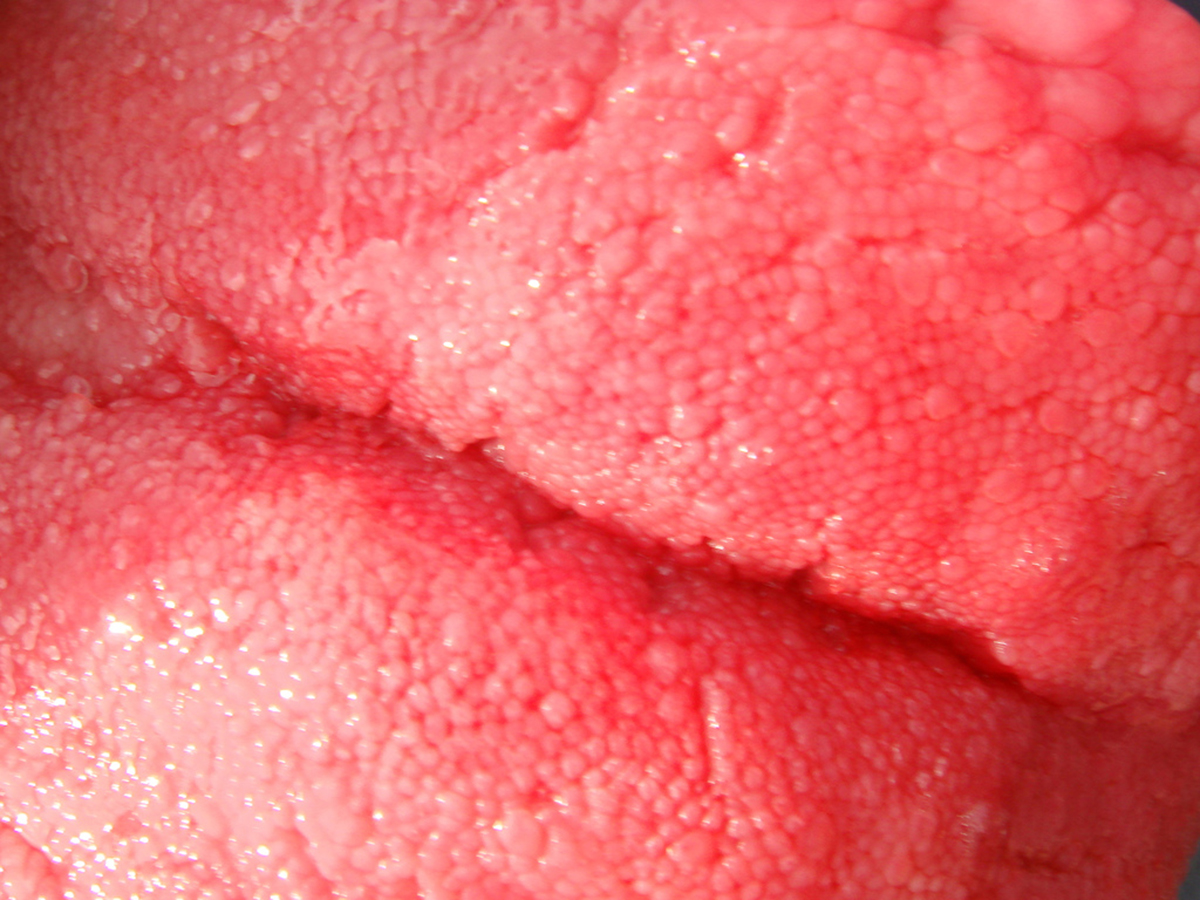Table of Contents
Cracked Tongue
Cracks and fissures may appear in your tongue as you grow older. These are normally harmless, but problems may occur if you have poor oral hygiene, which may lead to infection, such as a fungal infection of the crevices. You may suddenly experience pain, sometimes burning sensation, and a foul breath. The infection may be treated with topical antifungal medications. Sometimes dentures and other dental appliances can also cause indentations on your tongue. To avoid having a cracked tongue, drink enough water, practice oral hygiene, and make sure you have properly fitting dental fixtures.

White Patches On The Tongue
If you have white patches on the tongue that cannot be scraped off, you may have what is known as leukoplakia, which may have different causes. One is chronic irritation due to smoking. Smoking cessation usually leads to improvement. White patches on the sides of the tongue may be due to irritation of the tongue from rubbing the sides of the lower teeth. Overgrowth of cells in the tongue due to inflammation may be caused by oral lichen planus, an autoimmune condition. It produces a a white lace-like pattern on the tongue, but sometimes an erosive form can develop, which looks like shallow ulcerations.
Persistent Red Patches
Red patches on the tongue that do not go away with treatment may be a sign of tongue cancer. Unlike canker sores, these red lesions do not resolve within two weeks. Consult your doctor if you have persistent red patches on the tongue.
Geographic Tongue
This refers to a tongue that looks like a bumpy (geographic) terrain. The most common tongue condition, geographic tongue affects about 14 percent of the population. It may affect different areas of your tongue and can increase your sensitivity to acidic or spicy foods. It is typically harmless, and although the cause is not clear, it could be due to random shrinking of the taste buds. Geographic tongues usually need no treatment, but if you experience pain, you may see a doctor who may prescribe an anti-inflammatory paste or antihistamine rinse.
Swollen Tongue
Your tongue can suddenly swell and become enlarged. One of the most common causes is allergies to food or medications, or even a bee sting. This can become a life-threatening situation, especially if it is associated with difficulty in breathing, swallowing, and fainting. You must seek emergency care if this occurs.
See Also: Pros and Cons of Tongue Piercing
Other causes of tongue swelling include side effects of medications such as ACE inhibitors, which are used to treat high blood pressure and nonsteroidal anti-inflammatory drugs (NSAIDs) such as Aspirin, Aleve, and Advil. Tongue injury due to biting or eating/drinking hot foods can also cause tongue inflammation and swelling. Other causes of inflammation that leads to swollen tongue include oral thrush and oral herpes. Other medical conditions that cause tongue enlargement (macroglossia) include tongue cancer, acromegaly, sarcoidosis, amyloidosis, Kawasaki disease, Down syndrome and hypothyroidism. Consult your doctor if you have a swollen or enlarged tongue.
Tongue Growths
New growths on the tongue may be harmless, such as raised, thickened nodules that may be due to traumatic fibroma. However, they can also be a sign of cancer, such as squamous cell carcinoma, which is the most common cancer of the oral cavity. It usually affects the side of the tongue and commonly involves older people. Risk factors include tobacco smoking, alcohol use, and infection with human papillomavirus (HPV).
Ulcerations and nodules may be seen as the tumor progresses. Sometimes the tumor involves the base of the tongue and is undetected until the late stage of development. See your doctor if you have an unusual new growth on your tongue.
- MedicieNet. Tongue Problems. http://www.medicinenet.com/tongue_problems/article.htm
- Readers’ Digest. 9 Surprising Secrets Your Tongue Can Reveal About Your Health. http://www.rd.com/slideshows/tongue-disease-signs/
- DailyMail. How the colour of your tongue reveals your health. http://www.dailymail.co.uk/health/article-37340/How-colour-tongue-reveals-health.htmlPhoto courtesy of Mike Burns via Flickr: www.flickr.com/photos/mike-burns/1155987283
- Photo courtesy of MrVJTod via Flickr: www.flickr.com/photos/mrvjtod/169803547
- www.medicinenet.com
- www.rd.com
- /www.dailymail.co.uk

